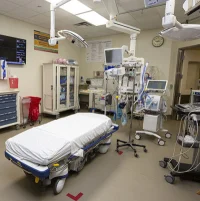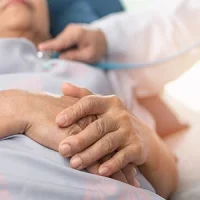According to a study published in the American Journal of Respiratory and Critical Care Medicine, shortening the length of rotations in the ICU from the traditional 14-day schedule to only seven consecutive days can help mitigate burnout among critical care physicians.
Penn Medicine implemented a pilot initiative across four critical care rotations at the Hospital of the University of Pennsylvania (HUP) and Penn Presbyterian Medical Center. The goal was to identify strategies that would effectively mitigate burnout and maximise job fulfilment. The researchers tested the Critical Care Societies Collaborative in this study, which promotes limiting the maximum number of days worked consecutively.
As part of this initiative, intensivists at one unit at HUP had the option of 14-day traditional rotation or a seven-day rotation. Two other units were capped at seven consecutive work days, and intensivists in the fourth unit worked a two-week rotation with one weekend off. 180 surveys were administered to 29 physicians at different points through the rotations.
Results showed that burnout and fulfilment varied by clinical rotation and length of rotation. Intensivists at HUP who were allowed to choose between the 14-day and 7-day rotation had a 61% burnout and 47% fulfilment rate. The intensivist on a seven-day rotation had a 24% burnout and 76% fulfilment rate. Findings from this study validate the efficacy of truncated rotation in reducing physician burnout and stress. In addition, the findings show that shorter rotations among critical care physicians also increased job fulfilment.
Lead author Mark E. Mikkelsen, Chief of Medical Critical Care and Associate Professor of Medicine, explains that critical care medicine is characterised by periods of extreme stress which can contribute to high burnout among critical care physicians. However, implementation of new strategies such as shorter rotations could help reduce burnout rates and improve job fulfilment. In this study, limiting the number of consecutive days per rotation and providing adequate non-clinical time between rotations had a positive impact on overall burnout rates.
Image Credit: iStock
References:
Mikkelsen ME et al. (2019) Burnout, and Fulfillment, in the Profession of Critical Care Medicine. American Journal of Respiratory and Critical Care Medicine. doi.org/10.1164/rccm.201903-0662LE
Latest Articles
Stress, ICU, burnout, critical care physicians, ICU rotation, job fulfilment
According to a study published in the American Journal of Respiratory and Critical Care Medicine, shortening the length of rotations in the ICU from the...










